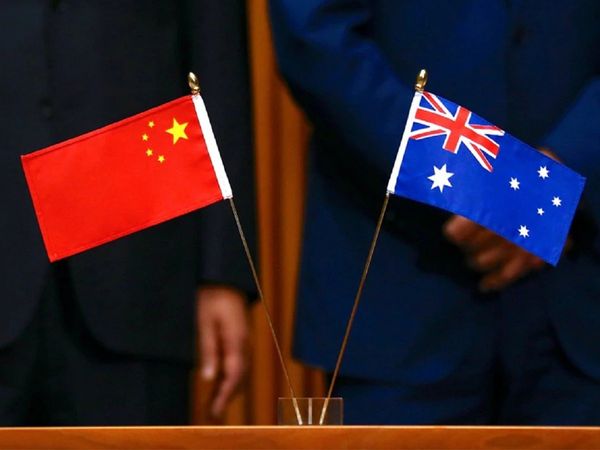
Of course, that went down like a lead balloon in Canberra. Australian media and right-wing commentators lost no time in laying it onto their kiwi cousins.
Relations between Beijing and Canberra have not been good. In fact, some would argue that they have hit rock bottom. That is not to say that Wellington has not had its own share of problems with Beijing. But in New Zealand’s case, it mostly sought subtle diplomacy to resolve issues rather than wield the megaphone.
For the past one-and-a-half years, several Australian exports to China such as barley, wine, lobsters, beef, timber and coal have encountered problems.
New Zealand and Australia both count China as their biggest trading partner, but the former has managed the bilateral relationship much better.
Two-way trade between New Zealand and China now exceeds $32 billion a year.
New Zealand does not have an economy as big as its cross-Tasman neighbor, but it does punch well above its weight when it comes to international trade. And the reason for that is because it is primarily an agricultural nation.
It does not have the mineral wealth Australia has, but its farm sector is big and global.
Indeed, Australia also has a big agricultural sector, but the difference is that New Zealand seems to run its affairs better. A simple thing like dairy, which was once a top sector in Australia, has been allowed to wither in the bigger nation. New Zealand, on the other hand, has managed to build its sector into a global force.
After China and New Zealand upgraded their 2008 free trade agreement, it is said to be one of the world’s biggest. And on Jan 26, it signaled a new chapter in their relationship.
True, the relationship has not been easy, but New Zealand has managed to build a solid foundation through good diplomacy, hard work and respect.
Australia, too, has a free trade agreement with China. When it came into force on Dec 20, 2015, it was heralded as a “historic agreement” that would deliver enormous benefits to Australia, “enhancing our competitive position in the Chinese market, boosting economic growth and creating jobs”, said Canberra at the time.
Over the past five years, Australia’s relationship with China has been in a downward spiral.
It has been suggested that New Zealand could step in and offer to mediate between Australia and China-a suggestion that did not go down too well in Canberra.
When asked about the possibility a day after the signing of the upgraded free trade pact with China, New Zealand Trade Minister Damien O’Connor said, “I can’t speak for Australia and the way it runs its diplomatic relationships, but clearly if they were to follow us and show respect, I guess a little more diplomacy from time to time, and be cautious with wording, then they too could hopefully be in a similar situation.”
In many ways, O’Connor was stating the obvious. If Australia wants to regain some of its lost ground, it needs to take a leaf out of New Zealand’s book.
It is something Chinese leadership has been talking about for years, a message that was reiterated in President Xi Jinping’s virtual address to the World Economic Forum on Jan 25, when he said: “The right choice is for countries to pursue peaceful coexistence based on mutual respect and on expanding common ground while shelving differences, and to promote exchanges and mutual learning. This is the way to add impetus to the progress of human civilization.”
If New Zealand can get it, why cannot Australia? It is not too difficult a concept to understand.
As Xi said in his speech, “No two leaves in the world are identical, and no histories, cultures or social systems are the same. Each country is unique, with its own history, culture and social system, and none is superior to the other.”
Maybe Australia’s leadership should start listening to the voices of reason, rather than those who would prefer to wind the clock back to the dark days of the Cold War with the then Soviet Union.
The global community has gone through enough over the past year with the COVID-19 pandemic and all the recriminations that have followed.
New Zealand may not be among the world’s leading powers, but it does have a strong voice and deserves to be listened to.
Perhaps Canberra should listen more to reason rather than follow the hawks who pursue another agenda.
The unescapable fact is that China has arrived as a global economic power. All it seeks is to be treated as an equal partner.
So if New Zealand can do it, why not Australia?
The author is a China Daily correspondent based in Sydney.

























